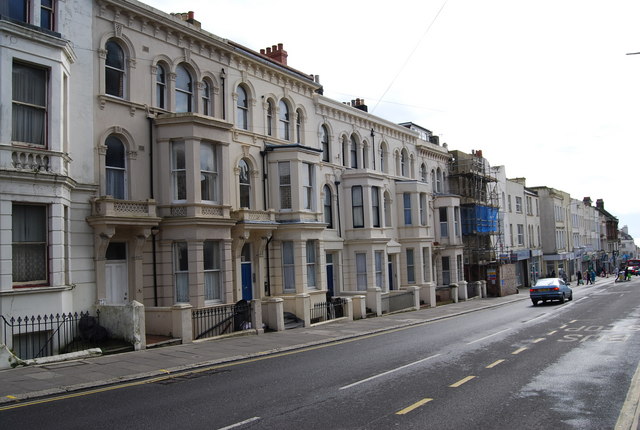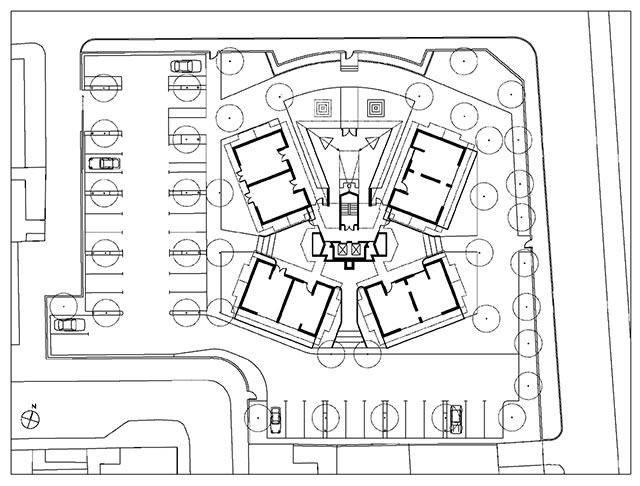
One family’s story shows how much has changed in East London’s housing market
London is one of the most diverse and ever-changing cities in the world. But for some families, it's been their home for generations... and yet it's becoming harder and harder to keep those communities together.
We spoke to Coleen, whose family have been in East London since the late 1930s, about her story of London housing, and whether she feels her two year old grandson will be able to stay in the borough their family has called home for so long. Here's her story.
1940s
"I was brought up in social housing in Tower Hamlets, built in the 1930s. My mum’s family moved there around 1939. My parents got a flat in the same block, very close to their family, and moved to a new council block nearby in the mid 60s. My mother still lives in a flat in the same block,which she rents – it’s run by a housing association now. The majority of her pension goes on her rent, actually. She’s 85 this year.
My parents never bought their flat probably because they were risk-averse and didn’t like to be in debt. My mum thought about it but for her it just seemed like an enormous risk and she didn’t like the idea of it being leasehold.. although if you asked her what a leasehold was, she probably wouldn’t have understood the details.
1980s
I’ve always lived in Tower Hamlets, apart from a few years at university and travelling. When I returned home my partner and I found a two bedroom flat in a 16 storey block in Tower Hamlets under the Greater London Council’s ‘Hard to Let’ scheme. That property was actually sold by the council for a penny or something, because there was a problem with the concrete cladding.
It’s called Keeling House, and was designed by Denis Lasdun, a well-known architect. The building has been restored now, and the flats are, you know, million pound properties.

So we lived in this brilliant flat for about two years until 1982, which was considered ‘hard-to-let’. The quality of the place was amazing. Wood floors, beautifully designed. Meanwhile we managed to save enough money to put down a deposit on a Victorian house in Bow where there was a scheme available to help people upgrade properties which needed repairs and facilities like bathrooms and indoor toilets. We had to spend a certain amount of money, and the council gave us a substantial grant, around 80 per cent of the cost.
The house cost us something like £27,500, and we got around £10,500 to upgrade it, which was just an enormous amount, relatively speaking. You had to have some spare funding for the initial outlay which you then claimed back, but other than that I don’t remember needing any particular qualifications - you just submitted a grant application.
Things were so different then. It was still pretty tough to get the money. But say we had a wall which needed to come down. We’d have to secure the builder but they’d be quite relaxed about payment because they knew we had this grant. In some cases he was prepared to wait for payment because he knew the council was going to release the funding.
And you knew the manager of the building society, where you applied for the mortgage because you went in there to pay into your savings account. Unlike nowadays, where it’s all done by computers and algorithms making decisions.
When I compare what it was like for us, and how it is now… we were never given any money, we don’t come from families who had passed on any wealth, and yet it was perfectly possible for us to buy somewhere by being frugal, and then getting what comparatively was a huge grant.

My cousins didn’t go to university, and many of them moved into Peabody properties. There was quite a nepotistic reference system back then. If you had a family member who lived in them, you’d almost certainly get somewhere to live.
2010s
It doesn’t work like that anymore. You can put your name down, I guess, on a social housing list, but there are really strict criteria, much more based on need. This almost certainly means you’re not going to be able to stay where your family is.
Obviously it makes sense that it’s needs-based, but the previous system did keep communities together. Younger generations seem to rely much more on their peer group and friendship circle for access to housing. But on the whole everyone has to be a lot more individualistic, in a way.
My son, who is 30, he lived at home until a few of years ago, because there was no way he could have afforded to have moved out. He still has quite a low-paid job, and doesn’t have any hope really of saving up enough money for a mortgage.
Economic pressures have such a huge impact on family building. My mum didn’t have to worry about childcare because her sister looked after me. I had the support of my husband’s sister for a while. But that is really fading for families. Now you’d just have to go to ‘the market’ to find out what’s available. And there seems to be very little through public provision if any. It’s all about the bloody market. I think it’s really disheartening.
“Younger generations seem to rely much more on their peer group and friendship circle for access to housing. But on the whole everyone has to be a lot more individualistic, in a way. ”
We live very close to my son and his partner, and I do some of the child care for them, so she can work, to earn enough money to put down a deposit on a larger flat. But she wouldn’t be able to do that if she was paying out for care - at the minute I look after him 3 days a week, 10 hours a day. The cost would be enormous. So it’s not just about housing, is it? It’s about all the support that you get from a community.
The next generation
I feel really strongly connected to where I live. We don’t want to move elsewhere, or sell the house. For my grandson - and I hate to think about this actually, I feel really conflicted about it - the wealth we’ve acquired through property means that in relative terms it’s colossally more valuable than the house we bought, and I feel like that wealth has got to be protected for my grandson to have any chance of living anywhere that he’s got a connection to.
In terms of understanding the market, there’s so much of what my husband calls ‘just puff’ about house prices.... and it seems to me too that a load of it is just lies. It’s marketing. So I’m very sceptical about what I read about places and the value of properties. I feel there’s a real gap in terms of people’s expectations and reality."



